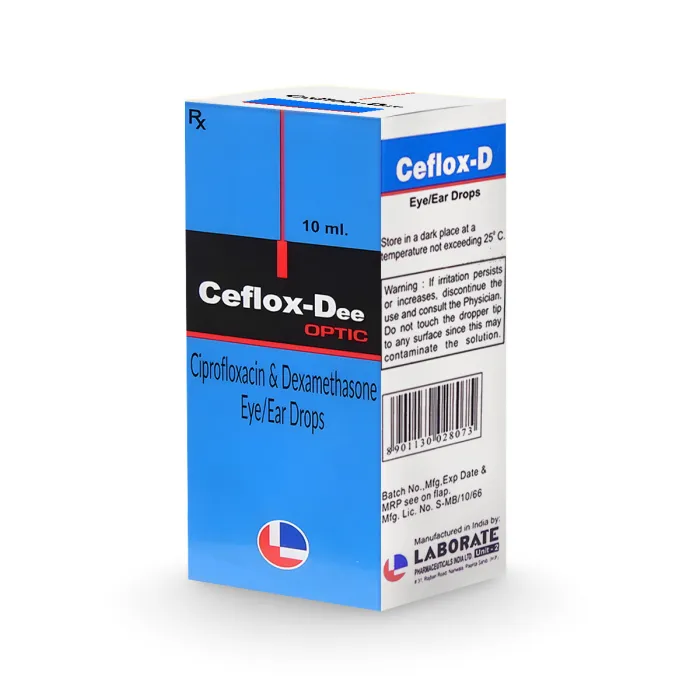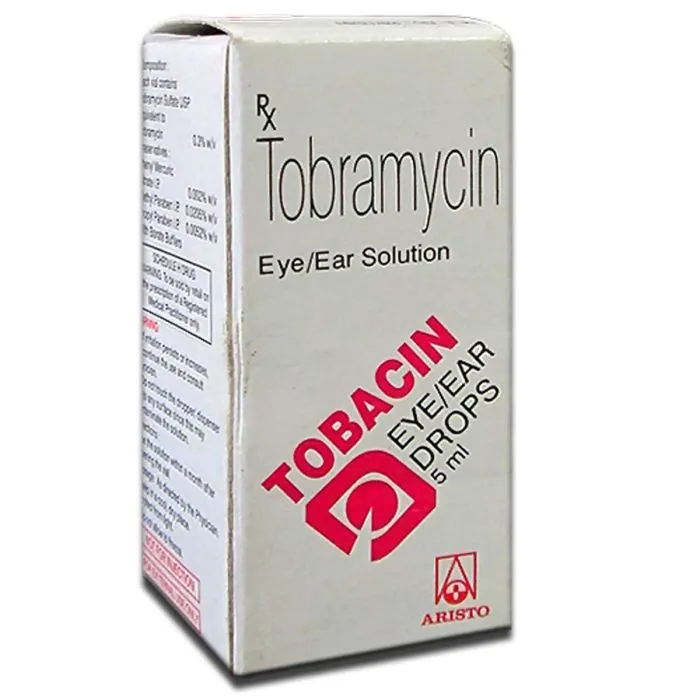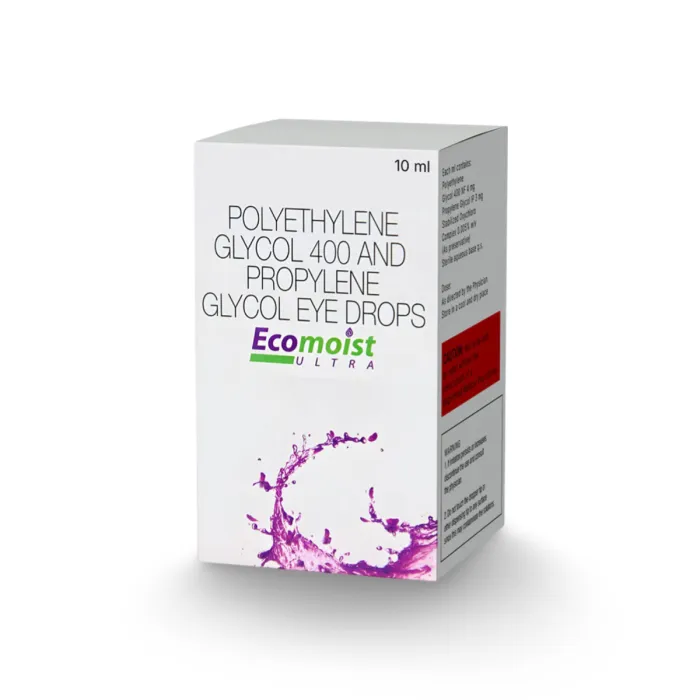Eye issues are common, especially during the monsoon season, when dust, humidity, and bacteria thrive. They can affect your eyelids, cornea, or conjunctiva (transparent membrane lining of the inner eyelids), leading to uncomfortable symptoms like redness, swelling, itching, discharge, or even pain. Conditions such as Conjunctivitis, Blepharitis, Keratitis, or Styes are among the most common eye infections caused by bacteria, fungi or viruses.
While extreme cases require medical attention, some mild cases may improve with at-home relief measures. This blog lists research-backed home remedies for eye infections in adults and infants to help you manage symptoms naturally.
Since eyes can become infected through contact with contaminated water, hands, or shared items, maintaining proper hygiene and preventing exposure to others are as important as treating the infection itself. Thus, we have also listed the best hygiene and dietary tips to maintain overall ocular health and prevent future recurrence.
1. Warm compress
A warm compress is one of the most trusted home remedies. The heat helps reduce pain, swelling and crusty discharge. It is especially useful for Styes and Blepharitis, where oil glands in the eyelids get blocked.
Here’s how to use a warm compress for common eye infections:
- Soak a clean cloth in warm water. Make sure it’s not hot, just warm.
- Wring out excess water.
- Place gently over your closed eye for 5-10 minutes.
- Repeat 2-3 times a day with a fresh cloth each time.
A warm compress encourages oil gland drainage to keep eyelids healthier.
2. Cold compress
Cold compresses are the best when your eyes feel red, itchy, or swollen, especially with Allergic Conjunctivitis. Its cooling effect reduces inflammation and gives instant relief from irritation.
Here’s how you can use a cold compress for at-home eye relief:
- Take a clean cloth and soak it in cold water.
- For extra cooling, place it in the refrigerator (not freezer) for a few minutes.
- Place over your closed eyes for 5-10 minutes.
- Repeat as needed whenever itching or swelling recurs.
- Do not apply ice directly.
Besides calming infections, cold compresses are a quick fix for puffy or tired eyes, making them feel refreshed, especially after long screen hours.
Save up to 90% on your medicine bills

Ciplox D Eye/Ear Drops

Ceflox D 10 ml

Tobacin 5 ml

Ecomoist Ultra Eye Drop
3. Cucumber slices, aloe vera or rose water
These are well known for their cooling and anti-inflammatory effects, making them helpful when your eyes feel itchy, irritated, or swollen. Cucumber and rose water hydrate and soothe, while aloe vera contains antioxidants that help calm redness and irritation.
To cure a mild eye infection at home, you can
- Chill fresh cucumber or potato slices in the refrigerator. Place them over your closed eyes for 10-15 minutes. Repeat as needed.
- Or extract fresh aloe vera gel, refrigerate it for a few minutes, and gently apply it around the eyelids. Avoid direct contact with the eyeball.
- Or, simply soak clean cotton pads in chilled rose water and place them over your closed eyes for 10 to 15 minutes.
These remedies also reduce puffiness and dark circles.
4. Tea bags
Tea contains natural compounds such as catechins, tannins and polyphenols, which have antibacterial, antiviral, and antifungal properties. Green, black, and chamomile teas are especially soothing and can help manage symptoms of Pink Eye and irritated eyelids.
How to use tea bags for at-home relief:
- Steep tea bags in hot water for 2-3 minutes.
- Let them cool normally or in the refrigerator until comfortably cold.
- Keep the cooled tea bags on your eyelids for 10-15 minutes.
- Repeat 2-3 times as needed.
5. Saline rinse
A saline rinse works as a natural cleanser to flush out dirt, allergens, and microbes. It is especially beneficial for Conjunctivitis, minor bacterial infections, Dry Eyes and allergy symptoms.
Contrary to the popular opinion of using seawater or tap water with salt, you should only use sterile saline solution available at pharmacies to rinse your eyes. Make sure to:
- Wash your hands thoroughly.
- Tilt your head back and place 1-2 drops of saline into the affected eye using a dropper.
- Blink a few times to spread the solution.
- Repeat 2-3 times daily.
- Avoid direct contact of the dropper with the eye.
- Do not reuse the old solution, as it may worsen the symptoms.
6. OTC artificial tears
Artificial tears are simple over-the-counter (OTC) eye drops that help relieve irritation, dryness, and burning often associated with mild infections. They usually contain polyethylene glycol or carboxymethylcellulose, which keeps them moist and flushes out debris or allergens.
Consult a doctor and follow their advice on dosage and usage. You can also follow the instructions listed on the package.
- Wash your hands before each use.
- Tilt your head back and pull down your lower eyelid to form a pouch.
- Squeeze 1-2 drops in the affected eye.
- Do not touch your eyes with the dropper or your fingers.
- Use as many times as instructed by your ophthalmologist.
- If you have sensitive eyes, opt for preservative-free options.
Apart from easing mild infections, artificial tears or lubricating eye drops are widely recommended for Dry Eye, especially for people who spend long hours on screens.
7. Honey
Honey is much more than just a natural sweetener; it has proven antibacterial, antifungal, and anti-inflammatory properties, making it a powerful home remedy for several eye conditions. A clinical trial conducted in Iran has shown that honey is effective in treating Bacterial Conjunctivitis, Keratitis, Blepharitis, and Corneal Ulcers.
Here’s how to use honey for eye infection treatment:
- Mix medical-grade honey with saline in equal quantities.
- Use a sterile dropper to place 1-2 drops in the infected eye.
- Apply twice daily or as your doctor advises.
- You can also apply diluted honey as a compress on closed eyelids.
- Never use raw or food-grade honey directly.
8. Guava leaves
Guava leaves, a traditional remedy in many cultures, contain antimicrobial and anti-inflammatory compounds that reduce swelling, irritation, and redness caused by mild infections.
You can use this home remedy for mild eye infections as follows:
- Wash fresh guava leaves thoroughly.
- Boil them in clean water and allow them to cool.
- Soak a clean cloth in the cooled water and place it gently over the affected eye for 10 minutes.
- Repeat 2-3 times until symptoms subside.
9. Castor and tea tree oil
Castor oil has long been valued for its moisturizing and anti-inflammatory properties. Johns Hopkins University studies show that castor oil-based eye drops can improve tear film stability, making them especially helpful in conditions like Posterior Blepharitis (where oil glands are blocked) and Dry Eyes. By keeping them lubricated, castor oil also eases redness, burning, and irritation linked with mild infections.
How to use:
- Wash your hands thoroughly before applying.
- Place 1 drop in the affected eye at bedtime.
- Gently blink to spread the oil across the surface.
- Make sure the dropper tip does not touch your eye or eyelashes.
- Use daily for short-term relief, unless otherwise advised by a doctor.
- Stop use if you notice worsening redness or pain.
- Only use pharmaceutical-grade castor oil drops and never kitchen oil or non-sterile oil.
Additionally, Tea Tree Oil (TTO) is effective against eyelid infections caused by mites. Studies show patients reported reduced irritation and dryness
and needed fewer lubricants within one month of using TTO scrubs. If you want to try this herbal home remedy too, simply dilute the TTO scrub with carrier oil (such as olive oil, coconut oil, or almond oil) and gently clean your eyelids with it. Avoid direct contact with the eyeball.
10. Epsom salt solution
Epsom salt (Magnesium Sulfate), known for its antiseptic and anti-inflammatory properties, can help soothe sore, red, or mildly infected eyes.
Follow this step-by-step process to safely treat Bacterial Pink Eye or Conjunctivitis in toddlers and adults alike:
- Dissolve 1 teaspoon of Epsom salt in 1 cup of warm distilled water.
- Stir until the salt dissolves completely, then let it cool to a comfortable temperature.
- Soak a clean cloth in the solution. You can use a cotton pad too.
- Place gently over the closed eyelid for 5-10 minutes.
- Repeat once or twice daily with a fresh solution each time.
- Always use distilled or sterile water to prepare the solution.
- Do not apply it directly to the eye.
- Stop use if irritation worsens and seek medical help.
11. Colostrum (with caution)
For infants, Colostrum in breast milk offers a natural and highly effective remedy against Neonatal Conjunctivitis (eye infection in newborns). It contains antibodies, enzymes, and immune-boosting compounds that naturally protect babies from infections.
A 2021 clinical study in Japan found that breast milk drops were as effective as standard ophthalmic solutions in treating eye discharge in infants under 6 months old. Additionally, the University of Medical Sciences, Isfahan, Iran, suggested colostrum as an alternative to antibiotics in the treatment of Neonatal Conjunctivitis as well.
Consult an ophthalmologist or pediatrician first. Thereafter, you can treat Conjunctivitis or minor eye infections in infants or breastfeeding toddlers with Colostrum under medical supervision as follows:
- Express or gently collect a small amount of breast milk into a clean bowl.
- Use a sterile dropper to place 1-2 drops into the baby’s infected eye.
- Wait for 5 minutes. Then, gently clean it with a soft cotton cloth.
- Repeat the process twice daily.
- Use only fresh, uncontaminated breast milk and not stored or refrigerated bottles.
If symptoms worsen or do not improve within 2-3 days, consult the doctor immediately.
Prevent common eye infections with proper hygiene and diet
Eye infections, such as Conjunctivitis (Pink Eye), Dry Eye, Blepharitis, Styes, Keratitis, Cellulitis, Dacryocystitis, and Uveitis, can often be prevented with simple hygiene and lifestyle habits. To reduce your risk of recurring infections and help contain the spread of contagious ones, make sure to:
- Keep it clean: Wash your hands often and avoid touching or rubbing your eyes. Use clean towels, pillowcases, and makeup to prevent germ buildup.
- Protect your eyes: Stop using contact lenses or swimming if you notice redness or discharge. Wear protective glasses around dust, smoke, or chemicals.
- Practice good lens hygiene: Always clean and store contact lenses properly, and switch to glasses if discomfort appears.
- Support eye health naturally: Stay hydrated and eat foods rich in vitamin A, C, and omega-3s like carrots, spinach, citrus, and fish.
- Avoid irritants: Cut down on smoking, alcohol, and spicy or allergy-triggering foods, as they can worsen dryness and inflammation.
When should I see a doctor for eye infections?
Understanding the type of eye infection you may have can help you recognize when simple home remedies are enough and when it is time to seek professional care. A few general warning signs of eye infection to watch for include:
- Sudden or severe pain
- Blurred or loss of vision
- Sensitivity to light
- Thick, pus-like discharge
However, if your condition doesn’t seem to improve or your infant or child develops an eye infection, consult an ophthalmologist.
Conclusion
Eye infections can develop for various reasons, including bacterial and viral infections, allergies, and irritants. While natural home remedies, such as warm or cold compresses, honey drops, or saline rinses, may ease discomfort and promote healing in mild cases, they should be used with caution. Moreover, you can follow our list of good hygiene tips to reduce the risk of future infections.
While mild conditions may improve with home care, some require professional medical treatment. For more serious problems or persistent symptoms, consult your doctor, who may recommend antibiotics, antifungals, antihistamines or antivirals, as the case may be, to ensure safe and effective recovery.

Frequently Asked Questions
Can an eye infection heal on its own?
Yes, many viral and mild allergic eye infections can heal naturally without treatment in 1-2 weeks. However, fungal or bacterial eye infections usually need medical care and take 3-5 days to clear up. Do not delay seeing a doctor if symptoms worsen.
How long do eye infections usually last?
Most mild infections last between 7 and 14 days. Recovery time depends on the cause, as viral infections often clear faster than bacterial or fungal ones. On the other hand, allergic eye infections improve once the allergen is removed.
What is the fastest way to cure an eye infection at home?
The fastest relief for mild cases at home comes from warm or cold compresses and artificial tears. For bacterial eye infections, prescribed antibiotic eye drops work fastest.
Can I use multiple home remedies for eye infections simultaneously?
It is not advisable to use multiple home remedies for eye infections simultaneously, as it can sometimes irritate the eyes further and cause unexpected reactions. However, you may combine gentle remedies like compresses with saline rinses or lubricating drops under your doctor’s guidance.
What is the best antibiotic for an eye infection?
There isn’t one best antibiotic, as doctors will prescribe drops or pills depending on the type of bacteria causing said infection. Common choices include Erythromycin or Fluoroquinolone drops, but they should be used only under medical supervision.
What drink is good for eye infection recovery?
There is no proven drink for eye infection recovery, but staying hydrated with water helps maintain overall eye health. Additionally, some herbal tea bags (green, black and chamomile) have shown antimicrobial effects and drinks rich in vitamin C can boost immunity, but they are not a substitute for medical treatment.
What happens if you leave an eye infection untreated?
An untreated eye infection can spread, worsen symptoms, or, in rare cases, cause complications like Corneal Ulcers or vision loss. Severe cases may even lead to Uveitis or Cellulitis. Thus, seek prompt diagnosis to ensure quick recovery and prevent complications.
Cheap Medicine Shop only refers to credible, authoritative sources for our content. If you’re curious about how we ensure the integrity of our content, we encourage you to read our Content Information Policy.














